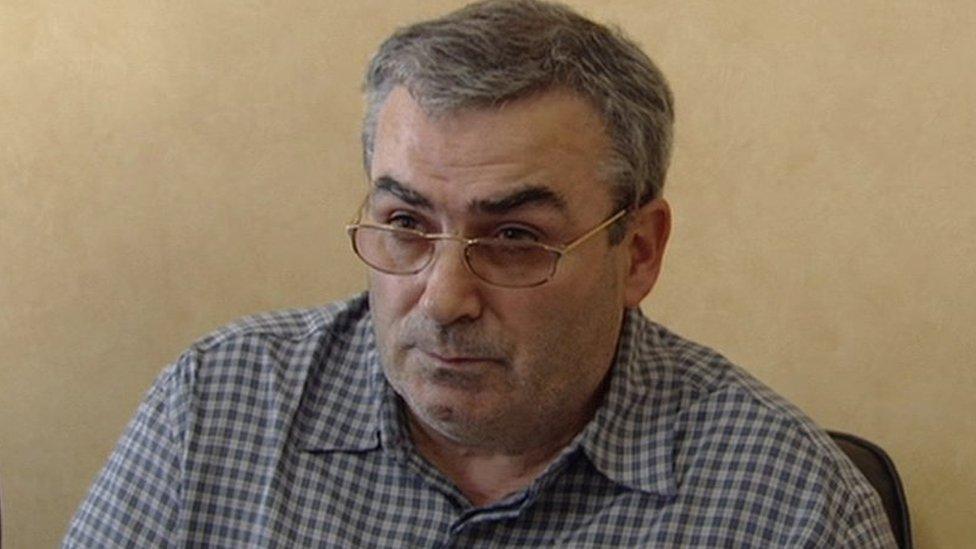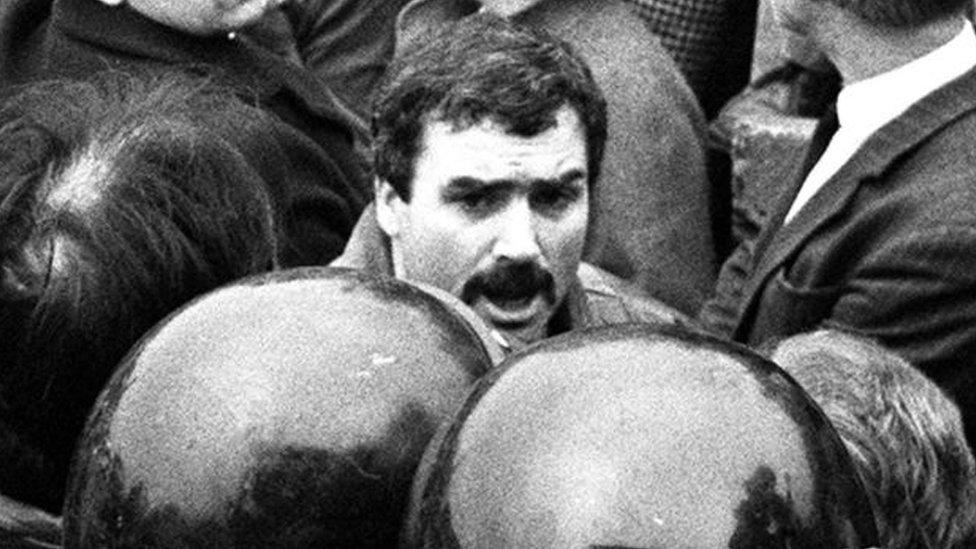Report into Stakeknife expected to call for government and IRA apologies
- Published

Fred Scappaticci left Northern Ireland when identified by the media as Stakeknife in 2003
A report into the activities of the Army agent known as Stakeknife will call for government and IRA apologies, it is understood.
It is further believed that Freddie Scappaticci will not be named.
The report from the Operation Kenova inquiry will also call for a review into the policy of neither confirming, nor denying sensitive information.
The UK government has a policy of neither confirming nor denying claims relating to intelligence issues.
Operation Kenova ran for seven years and cost £40m, will deliver its interim findings on Friday.
Who was Freddie Scappaticci?
Stakeknife's activities, and the role of his Army handlers, were part of the inquiry headed by Jon Boutcher, now chief constable of the Police Service of Northern Ireland (PSNI).
The agent is widely believed to have been west Belfast man Fred Scappaticci, an IRA member, who, recruited by the Army, became one of the UK's top spies during the Troubles.
He operated within the IRA's internal security unit throughout the 1980s, which was responsible for killing people it accused of being informers.
As first revealed by Brian Rowan, BBC News NI's former security editor, the report is likely to call for an apology from the UK government on what could have been prevented and from republicans, an apology for IRA murders and how families were intimidated and ostracised.
"The final text is tomorrow, but I've heard these words: 'The UK government should acknowledge and apologise to bereaved families and surviving victims, affected by cases where an individual was harmed or murdered because they were accused or suspected of being an agent and where this was preventable, or where the perpetrators could and should have been subjected to criminal justice and were not'," he told BBC Radio Ulster's Talkback.
"Clearly in this investigation, the investigation team has found cases where they think a proper use of intelligence information could have saved someone's life," he added.
"What is being asked of the republican leadership is this: 'The republican leadership should issue a full apology for PIRA [Provisional IRA] abduction, torture and murder of those it accused or suspected of being agents during the Troubles and acknowledge the loss and unacceptable intimidation that bereaved families and surviving victims have suffered.'"
No prosecutions
Thirty-two people were considered for prosecution in connection with the agent Stakeknife case, the Public Prosecution Service (PPS) has said.
The PPS previously decided no-one would be charged in connection with multiple murders due to "insufficient" evidence.
It has now provided a break-down of the total number of people reported to it by Operation Kenova.
The PPS said in all, 32 people were considered for prosecution across a range of charges, from murder and abduction to misconduct in public office and perjury.
It categorised 16 of them as 'civilians' - these would be individuals believed to have been IRA members.
A further 12 people are retired military personnel, including the agent's handlers.
The other four individuals were a former police officer, a former PPS prosecutor and two people with links to MI5.
Fred Scappaticci has previously been linked to 18 murders.
He died in 2023 before the PPS made a decision on whether he should face charges for his most serious crimes.
Mr Boutcher's team has already started briefing victims' families on their findings.
At the start of his investigation in 2016, Mr Boutcher had said he was aiming to bring people to justice.
Last week, Operation Kenova, now headed by Sir Iain Livingstone, expressed "frustration" that no-one would be prosecuted.
At a public meeting of the Northern Ireland Policing Board on Thursday, Mr Boutcher was asked if he agreed.
"I can tell you now I agree with Iain Livingstone and I will be dealing with all of this tomorrow."
- Published7 March 2024

- Published29 February 2024
